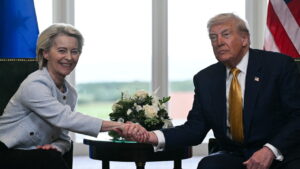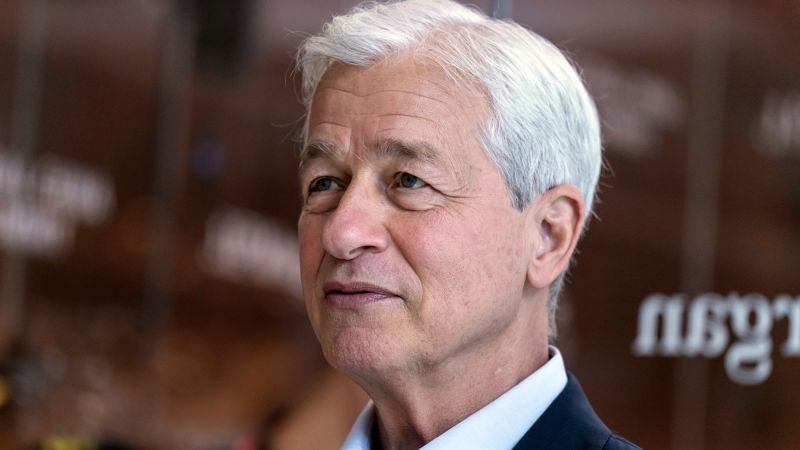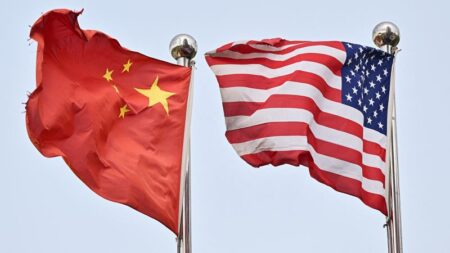JPMorgan Chase’s CEO, Jamie Dimon, recently addressed escalating tensions in the U.S.-China relationship, highlighting the broader implications for the United States at the Reagan National Economic Forum held in Simi Valley, California. During his statement, he characterized China as a “potential adversary,” acknowledging its growing capabilities and challenges. However, his primary concern was not just external threats but rather the internal challenges the U.S. faces. He posed a pressing question regarding America’s ability to unify its values, optimize its capabilities, and improve management standards in the face of increased global competition.
Dimon’s observations came against the backdrop of President Donald Trump’s trade policies, particularly the imposition of tariffs that have significantly impacted the trade dynamics between the two largest economies in the world. The trade war has not only affected bilateral exchanges but has also contributed to a ripple effect that influences global markets. Dimon pointed out that the unpredictability stemming from tariff fluctuations and judicial scrutiny has exacerbated tensions, marking a complicated phase in U.S.-China relations.
On the day of the forum, Trump had asserted that China had “totally violated” the latest trade agreements, and Dimon underlined that this adversarial stance was likely to persist, cautioning against the expectation that China would yield to U.S. pressure. He emphasized, “They’re not scared, folks,” dismissing the notion that Beijing would capitulate to American demands. This stark warning underscored the complexities surrounding diplomacy and economic negotiations, representing a stark reminder of the resilience and strategic positioning of China on the world stage.
Going further, Dimon reiterated his alignment with Warren Buffet, another powerhouse in the economic realm, about America’s resilience. However, he noted that the current circumstances were significantly different from previous periods of economic uncertainty. His call to action was clear: “We have to get our act together,” stressing the urgency of addressing internal issues. In Dimon’s view, the United States cannot afford to be complacent; immediate and effective measures must be taken to strengthen the nation’s structural framework.
Highlighting a critical issue, Dimon pinpointed “mismanagement” within the U.S. system as a core concern. He identified several areas in need of urgent reforms, such as permitting processes, regulatory frameworks, immigration policies, taxation systems, education in inner cities, and healthcare. According to him, if the U.S. could address these deficiencies effectively, it could see a robust economic growth rate of around 3% per year.
His remarks also included a stark critique of the current management practices evident at various governance levels. He noted that the elements of mismanagement were pervasive—spanning states, cities, and pension funds—with potentially disastrous consequences. Drawing from discussions with fellow panelists at the forum, he amplified the concern that such mismanagement could jeopardize the country’s economic standing and overall stability.
As an additional context, Dimon shared alarming statistics regarding the national deficit reported as approximately $2 trillion in 2024, equating to about 7% of the gross domestic product (GDP). He warned that should the nation slip into recession, that deficit could soar to reach around 10% of GDP, further compounding the economic disarray.
In summary, Jamie Dimon’s remarks at the Reagan National Economic Forum encapsulated critical reflections on the interplay between U.S.-China relations and domestic governance. His clarion call for reform serves as a reminder that internal cohesion and robust management are as essential as international diplomacy in safeguarding the future prosperity of the nation. Dimon’s insights underline the importance of collective action and responsiveness to both internal challenges and external pressures in navigating an increasingly complex global landscape.










